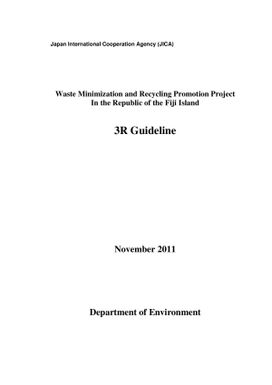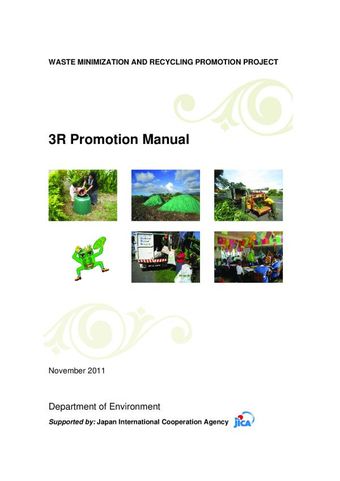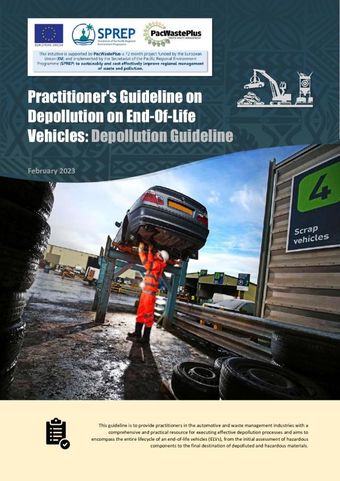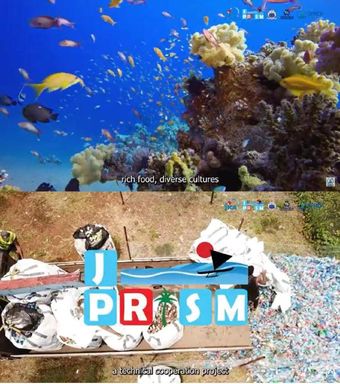Waste minimization and recycling promotion project in the Republic of the Fiji Island : 3R guideline
- Description:
- The Government of Fiji has advocated the "coexistence of a sustainable society and the environment" as one of its basic policies. Furthermore, in June 2008, the government published its National Solid Waste Management Strategy and Action Plan, 2008 2010 which aims to minimize waste, establish appropriate solid waste management (SWM) and reduce their environmental footprint. To achieve these basic policies, the Fiji Government has conducted a Waste minimization and recycling promotion project from October 2008, working out of the Lautoka City Council (LCC) and Nadi Town Council (NTC). The Department of Environment (DOE) decided to move ahead with waste minimization and recycling nationwide by promoting the 3Rs while building a sustainable Solid Waste Management (SWM), as stated in the National SWM Strategy 2011 2014 which was revised strategy endorsed by cabinet in 15th August, 2011. Therefore, the DOE prepared this 3R Guideline as a national policy to promote 3Rs.
- Display date:
- 2011
- Collections:
- Secretariat of the Pacific Regional Environment Programme (SPREP)
- Publisher:
- Department of Fiji, Japan International Cooperation Agency (JICA)
- Content partner:
- Secretariat of the Pacific Regional Environment Programme (SPREP)
- Availability:
- Not specified
-
Copyright status: All rights reservedFind out more about what you are able to do with this itemThis item is all rights reserved, with means you'll have to get permission from Secretariat of the Pacific Regional Environment Programme (SPREP) before using it. For more information, please see our use and reuse page.What can I do with this item?Non-infringing useNZ copyright law does not prevent every use of a copyright work, and this item may be hosted by an international institute or organisation. You should consider what you can and cannot do with a copyright work.No sharingYou may not copy and/or share this item with others without further permission. This includes posting it on your blog, using it in a presentation, or any other public use.No modifyingYou are not allowed to adapt or remix this item into any other works.No commercial useYou may not use this item commercially.
Related items
Welcome and warm Pasifik greetings
The information on this site has been gathered from our content partners.
The names, terms, and labels that we present on the site may contain images or voices of deceased persons and may also reflect the bias, norms, and perspective of the period of time in which they were created. We accept that these may not be appropriate today.
If you have any concerns or questions about an item, please contact us.



